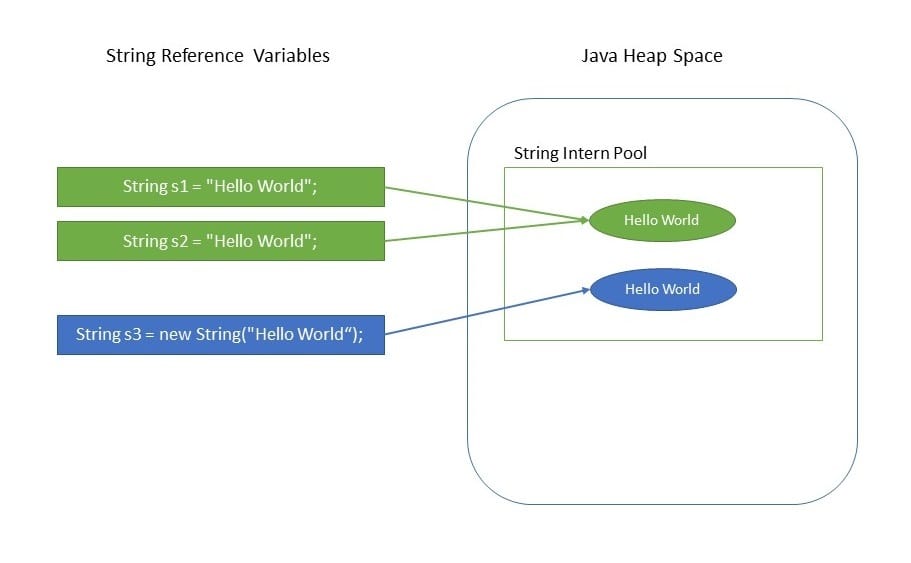Why Are Strings Immutable in Java? Necessary Knowledge for Designers
Why Are Strings Immutable in Java? Necessary Knowledge for Designers
Blog Article
Checking Out the Advantages of Unalterable Strings in Modern Shows Paradigms
In the realm of modern programming standards, the idea of unalterable strings stands as a cornerstone of durable software program advancement. The advantages they offer surpass plain ease; they basically alter the method data is dealt with within applications. By adopting unalterable strings, designers can ensure boosted data honesty, enhanced string security, streamlined debugging processes, increased security steps, and effective efficiency optimization. These benefits serve as a testimony to the profound impact that welcoming immutability can have on the integrity and efficiency of software systems.
Boosted Data Integrity

By preventing the adjustment of string objects, immutability gets rid of the danger of unintended modifications to the data they hold. This not just enhances the security of the info however likewise boosts the dependability of the code that relies on these strings.
Immutability likewise supports much safer multithreading environments, as simultaneous access to unalterable strings does not present the threat of data corruption through simultaneous modifications. This residential property streamlines the process of managing strings in identical programs circumstances.
Fundamentally, immutability acts as a safety guard around the information kept within strings, enhancing their integrity by making certain that once specified, their worths continue to be the same throughout the program's execution.

Enhanced String Safety
Unalterable strings boost the string security of programs by guaranteeing that when a string things is produced, its worth can not be customized. This residential property eliminates the threat of simultaneous threads trying to customize the very same string concurrently, which could cause information corruption or irregular states in the program - Why are strings immutable in Java?. In a multi-threaded atmosphere, where multiple threads accessibility and adjust data simultaneously, the immutability of strings offers a degree of safety by assuring that the information stays the same throughout its lifecycle
Streamlined Debugging Procedures
Offered the boosted thread security facilitated by immutable strings, a considerable advantage occurs in the realm of simplified debugging procedures. Immutable strings, once developed, can not be altered, making it easier to trace the circulation of information and determine the source of pests in a program. This immutability makes sure that strings stay consistent throughout the execution of the program, lowering the possibility of unanticipated modifications that can lead to errors.
When debugging with mutable strings, designers typically experience problems where a string's value is modified inadvertently, making it testing to determine the origin reason of a pest. However, with immutable strings, the data remains the same, enabling developers to concentrate on examining the real logic of the code instead of locating where and when a string was customized inaccurately.
Furthermore, immutable strings simplify the debugging process by enabling simpler reproduction of pests. Since immutable strings do not transform state, developers can recreate and study bugs better, resulting in quicker identification and resolution of issues within the codebase. This streamlined debugging process ultimately contributes to higher software program quality and improved total development performance.

Raised Safety Measures
Enhancing information defense and strengthening system honesty, the utilization of unalterable strings in software program applications adds substantially to raised safety and security steps. Immutable strings, when created, can not be changed, giving a vital defense against malicious meddling or unapproved accessibility. By ensuring that delicate data stored in strings continues to be unchanged throughout the program's execution, the threat of information violations or injection attacks is greatly lowered. Why are strings immutable in Java?. Immutable strings additionally play a crucial function in avoiding typical safety vulnerabilities such as buffer overflows and SQL shot strikes, as efforts Discover More to adjust string data at runtime are inherently limited.
In addition, the immutability of strings improves the predictability of program actions, making it less complicated to validate inputs and stop unanticipated changes that might compromise protection. This predictability simplifies the process of bookkeeping and verifying code, enabling developers to recognize prospective security loopholes a lot more effectively. Overall, including immutable strings into software application growth techniques not only improves the toughness and integrity of applications but likewise enhances their strength against safety threats.
Reliable Efficiency Optimization
Structure upon the foundation of enhanced safety and security measures accomplished via the use of unalterable strings, a vital element to think about in software application advancement is efficient performance optimization. When taking care of mutable strings, operations like concatenation or substring development usually cause the development of new string items, leading to memory expenses and raised processing time. However, with immutable strings, these operations can be maximized to enhance performance. By allowing strings to stay unchangeable and consistent, unalterable visit site strings promote much better memory monitoring and caching opportunities, eventually boosting the overall performance of the software.
Since unalterable strings can not be changed once produced, they can be shared across threads without the danger of unforeseen modifications, reducing the requirement for synchronization systems and enhancing concurrency. Unalterable strings simplify debugging processes as programmers can rely on that a string's value will certainly remain constant throughout the program's implementation, getting rid of possible mistakes created by mutable state adjustments.
Final Thought
Finally, the advantages of using unalterable strings in modern-day programs standards can not be overemphasized. Boosted information stability, boosted string security, streamlined debugging procedures, raised security measures, and efficient performance optimization all add to the total efficiency of shows jobs. By including unalterable strings right into shows practices, programmers can profit from a much more robust and reliable codebase.
Immutability, an essential function of strings in programming languages such as Java and Python, makes certain that as soon as a string object is produced, it can not be changed or customized.Unalterable strings boost the string safety of programs by making sure that when a string item is developed, its worth can not be changed. Immutable strings also play an essential role in protecting against typical security susceptabilities such as barrier overflows and SQL injection attacks, as efforts to manipulate string information at runtime are inherently limited.
By enabling strings to stay unchangeable and constant, unalterable strings promote better memory management and caching opportunities, inevitably boosting the total efficiency of the software application.
Immutable strings streamline debugging procedures as designers can trust that a string's worth why not check here will certainly stay constant throughout the program's implementation, getting rid of possible errors caused by mutable state adjustments.
Report this page